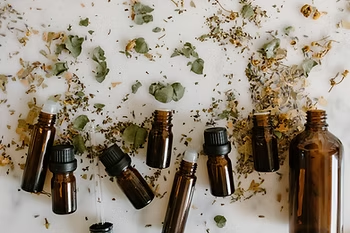1. The Connection Between Good Sleep and Exam Performance
When exams are around the corner, it’s easy to fall into the trap of thinking you need to stay up all night to cram as much information as possible. But here’s the truth: good sleep is one of the most underrated tools in your exam preparation toolkit. You might think those extra hours of studying are worth it, but if they come at the cost of quality sleep, it could backfire on you. Your brain needs time to rest, recover, and process all the information you’ve studied during the day.
a. Sleep is Fuel for Your Brain
Just like your body needs food to stay energized, your brain needs sleep to function at its best. When you sleep, your brain processes the information you’ve taken in, stores it, and strengthens your memory. If you’re skipping sleep, you’re robbing your brain of this crucial time to consolidate what you’ve learned. Think of it like trying to run a marathon without fueling up – eventually, you’ll crash. You wouldn’t expect to perform well without the right energy, so why expect your brain to retain everything without rest?
b. Lack of Sleep Affects Concentration and Focus
Have you ever tried to read a textbook after a bad night’s sleep? It feels like your brain is moving in slow motion, right? That’s because sleep deprivation impacts your ability to focus, making it harder to concentrate on complex tasks. If you’re not getting enough sleep, your brain’s ability to process and understand information takes a big hit. This is especially critical during exams, when you need your full mental capacity to solve problems, remember facts, and think critically. A tired brain just can’t perform at its best.
c. Good Sleep Reduces Stress and Anxiety
Let’s be real: exams can be stressful, and it’s totally normal to feel a bit anxious. But did you know that getting a good night’s sleep can actually help reduce those feelings of stress and anxiety? When you’re well-rested, your body is better equipped to handle pressure. On the flip side, a lack of sleep can increase your stress levels, making you feel even more overwhelmed. So, if you want to walk into that exam room feeling calm and collected, make sure you prioritize sleep in the days leading up to your exams.
d. Balancing Study Time and Sleep
It’s all about balance. Yes, studying is important but so is making sure you get enough rest. If you’ve got a big exam coming up, try to plan your study sessions so that they don’t cut into your sleep time. Aim for 7-9 hours of sleep each night, even during exam season. This way, you’ll wake up feeling refreshed, clear-headed, and ready to tackle your studies with full focus. And remember, a few well-rested hours of focused studying will always beat several tired, groggy hours of staring blankly at your notes.
In the end, don’t underestimate the power of a good night’s sleep. It can make all the difference between barely making it through your exam and acing it with flying colors. So, next time you’re tempted to stay up late cramming, just remember sleep is your secret weapon for exam success!

2. Calming Essential Oils to Reduce Anxiety
If you’ve been feeling overwhelmed by exam stress or work deadlines, calming essential oils might be just what you need. They’re nature’s secret weapon to ease tension, reduce anxiety, and help you feel more grounded. In this post, we’ll explore a few of the best essential oils for calming those anxious thoughts and how you can easily add them to your daily routine.
a. Lavender: The Stress Soother
Lavender is one of the most well-known essential oils for relaxation, and for a good reason. Its soothing scent has been shown to help reduce anxiety, ease nervous tension, and even improve sleep. If you’re feeling jittery before a big test or project, a few drops of lavender oil can do wonders. You can diffuse it in your room, add a couple of drops to your pillow, or even use it in a relaxing bath after a long day. Lavender works gently, so you’ll feel calmer without that groggy feeling other stress-relief methods can sometimes cause.
b. Bergamot: A Burst of Calm Energy
Bergamot essential oil offers a unique mix of calming and uplifting effects. Its citrusy, floral scent can help boost your mood while easing feelings of anxiety. If you’re having a stressful day at work or studying for hours, bergamot can refresh your mind and reduce nervousness at the same time. Try using it in a diffuser to create a calming atmosphere while you work or mix it with a carrier oil to use it as a soothing massage oil for tense muscles. Bergamot is perfect for those times when you need a mental reset without losing energy.
c. Chamomile: Gentle Relaxation for Tough Days
Chamomile essential oil is another fantastic option for reducing anxiety and promoting a sense of inner peace. You’ve probably heard of chamomile tea helping with sleep and relaxation, but the essential oil is just as powerful. It has a gentle, calming effect that’s perfect for winding down after a stressful day. When anxiety hits, chamomile helps to soothe both your mind and body. Whether you’re feeling emotionally overwhelmed or physically tense, a few drops of chamomile oil can help you relax. Add it to your bedtime routine by diffusing it in your bedroom or using it in a calming bath soak.
d. How to Use Calming Essential Oils
The great thing about essential oils is how easy they are to incorporate into your life. One of the simplest ways is using a diffuser to spread the calming scent throughout your space. This creates a peaceful environment, whether you’re working, studying, or relaxing at home. You can also make your own calming roller blend by mixing essential oils with a carrier oil. This way, you can have a pocket-sized stress-relief tool with you wherever you go. Apply it to your pulse points like your wrists or behind your ears whenever you feel the pressure building up.
e. Finding Your Perfect Calming Blend
If you’re new to essential oils, it might take a bit of experimenting to find the blend that works best for you. Some people love the floral sweetness of lavender, while others prefer the bright citrusy scent of bergamot. The key is to find what calms you. You might even find that combining a few different oils creates the perfect stress-relieving cocktail that helps you feel more at ease. Don’t be afraid to mix and match until you discover your own personal go-to blend.
Incorporating calming essential oils into your daily routine is a simple yet effective way to manage anxiety. Whether you choose lavender, bergamot, chamomile, or your own custom blend, these natural remedies can bring a little more peace to your life. So, take a deep breath, relax, and let these soothing scents work their magic.

3. How to Create a Stress-Free Study Environment
Studying for exams can be overwhelming, especially when your environment is cluttered or stressful. Creating a stress-free study space can do wonders for your concentration and mental well-being. Let’s dive into how you can transform your study area into a calming, productive zone where you can thrive.
a. Declutter and Organize Your Space
First things first: clear the clutter! A messy desk can make your mind feel cluttered, too. You don’t need to be a minimalist, but tidying up your study space will immediately make it more inviting. Organize your study materials, keep only the essentials on your desk, and make sure everything has its place. This small step reduces distractions and helps you focus on what really matters — your work!
b. Incorporate Calming Scents with Essential Oils
One of the easiest ways to create a relaxing atmosphere is by using aromatherapy. Essential oils like lavender, chamomile, or peppermint are known for their stress-relieving properties. You can use a diffuser to release these calming scents into your study space. A few drops of your favorite essential oil can help you stay calm, focused, and ready to tackle even the most challenging subjects. It’s a simple addition, but it makes a big difference in how you feel while studying.
c. Lighting and Comfort Matter
Proper lighting is essential for a stress-free study environment. Natural light is the best, so if you can, set up your study area near a window. If that’s not an option, opt for warm, soft lighting that doesn’t strain your eyes. You should also consider how comfortable your chair and desk setup are. Your posture affects your mood and energy, so ensure you have a supportive chair and that your desk is at a comfortable height. A cozy, well-lit space will make your study sessions feel more enjoyable and less like a chore.
d. Personalize Your Study Space
Your study environment should reflect your personality. Adding personal touches can make the space feel more welcoming and relaxing. Try including a plant for some fresh greenery, hang up motivational quotes, or display photos that make you happy. Personalizing your space helps you feel more connected to it, which can, in turn, reduce feelings of stress and anxiety. Plus, a space that feels like “you” is much more pleasant to spend time in, even when studying.
e. Take Breaks to Refresh
Even the best study environment can’t work miracles if you don’t give yourself proper breaks. Incorporate short, frequent breaks into your study routine to keep your mind fresh. Step away from your desk, stretch, or take a quick walk to clear your head. You can also use your breaks to reapply essential oils to your pulse points or take deep breaths of calming aromas. These moments of relaxation will help you come back to your study space feeling recharged and ready to focus.
Final Thoughts
Creating a stress-free study environment isn’t as difficult as it sounds. By keeping your space clean, incorporating calming scents, ensuring comfort, and adding personal touches, you can turn your study area into a place where you can focus, relax, and perform at your best. Remember, a well-organized and inviting space can transform even the most stressful exam prep into something a little more manageable!

4. Incorporating Aromatherapy into Daily Study Routines
Studying for exams can feel overwhelming, especially when you’re juggling multiple subjects and deadlines. To help you stay focused and calm, consider incorporating aromatherapy into your daily study routine. Aromatherapy, which uses essential oils to enhance your well-being, is a simple and effective way to create a more peaceful and productive environment. You might be surprised at how these natural scents can help reduce stress and keep your mind sharp.
a. Start Your Day with a Refreshing Aroma
Starting your day on the right note can make a big difference when you’re preparing for exams. Instead of rushing straight into your study materials, take a few moments to inhale an uplifting essential oil, such as lemon or peppermint. These invigorating scents are known to boost energy levels and improve mental clarity. You can place a few drops in a diffuser or simply inhale the scent from the bottle. By doing this first thing in the morning, you’ll start your study session feeling refreshed and ready to tackle your work.
b. Set the Mood for Focused Study Sessions
When it’s time to dive into your study materials, it’s important to create an environment that helps you concentrate. Aromatherapy can be a great tool to set the mood for focused and distraction-free study sessions. Essential oils like rosemary, eucalyptus, or lavender can enhance concentration and calm the mind, making it easier to absorb information. Try diffusing a blend of these oils in your study space while you work. The gentle aroma will keep you grounded and focused on the task at hand, without feeling overwhelmed by the stress of studying.
If you’re someone who gets easily distracted or feels anxious when studying, oils like lavender or frankincense can work wonders. Lavender is known for its calming properties, helping to ease anxiety and promote relaxation. Frankincense, on the other hand, is great for creating a sense of mental clarity. Incorporating these oils into your study routine can help you stay focused for longer periods and make your study time more productive.
c. End Your Day with a Relaxing Aroma
After a long day of studying, it’s essential to wind down and relax. Aromatherapy can help you transition from study mode to relaxation mode, ensuring that you get a good night’s sleep and wake up refreshed for the next day. Essential oils like chamomile and sandalwood are perfect for this. Chamomile is well-known for its soothing effects, helping to reduce tension and calm the nerves. Sandalwood promotes a sense of peace and mental clarity, making it ideal for unwinding after a busy day.
You can use these oils by adding a few drops to your evening bath or diffusing them in your room before bed. This practice will not only help you relax but also ensure that you’re mentally prepared for the next day of studying. A relaxed mind is more likely to retain information, so ending your day with aromatherapy can actually enhance your overall study performance.
Incorporating aromatherapy into your daily study routine is a simple yet effective way to manage stress, stay focused, and create a more peaceful study environment. Whether you’re using energizing oils in the morning or calming scents in the evening, the power of aromatherapy can help you stay on top of your exam preparation without feeling overwhelmed. So, why not give it a try? You’ll find that these little aromatic boosts can make a big difference in your productivity and well-being.

